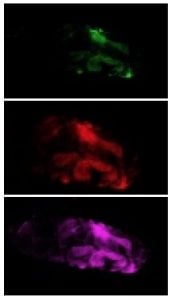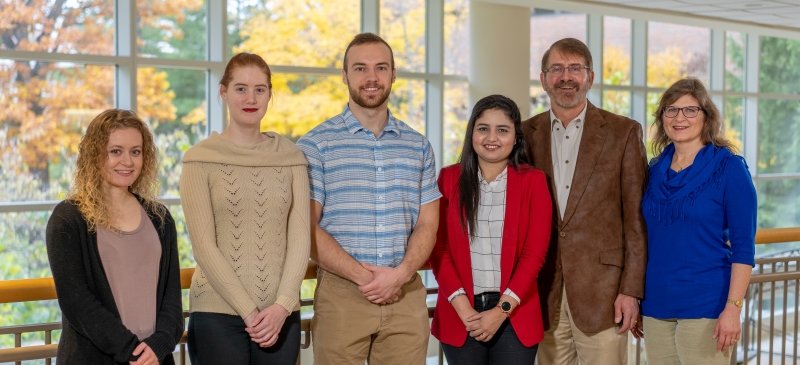The article by Professor Haiying Liu, Rudy Luck and their research team, entitled “Near-infrared fluorescent probes based on TBET and FRET rhodamine acceptors with different pK(a) values for sensitive ratiometric visualization of pH changes in live cells,” has been selected for inclusion in an online collection highlighting the most popular articles published in Journal of Materials Chemistry B in 2019.
This research has been supported by the National Institute of General Medical Sciences of the National Institutes of Health under Award Numbers R15GM114751 and 2R15GM114751-02 (Haiying Liu).






